Are you captivated by Renaissance and early modern art? These are the best museums to visit in Bavaria:
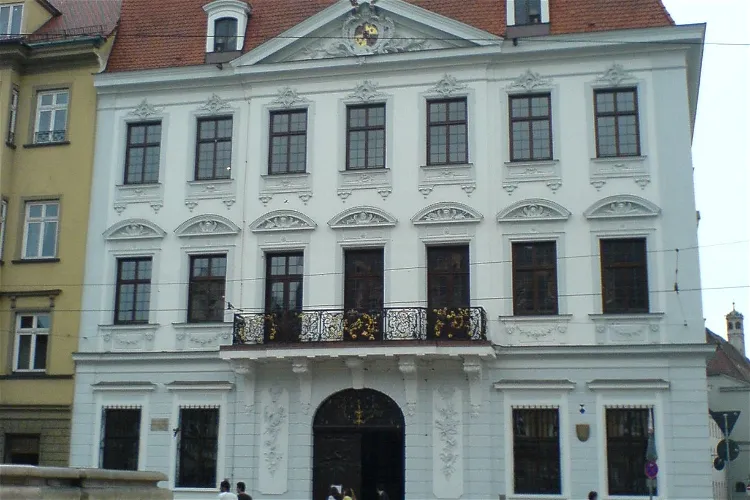
Schaezlerpalais
AugsburgThe Schaezlerpalais in Augsburg is a significant location for art enthusiasts as it houses both city and state art collections. This provides visitors with a unique opportunity to explore a wide range of artworks under one roof. The collections include various periods and styles, offering a comprehensive overview of the art history.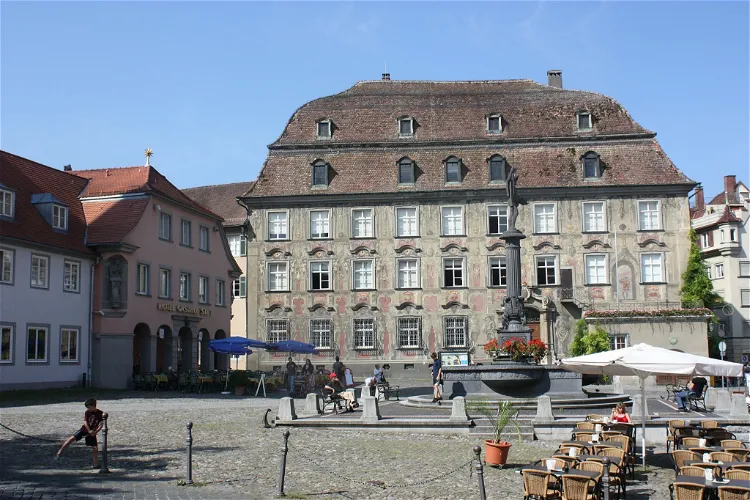
City Museum of Lindau
Lindau (Bodensee)The City Museum of Lindau is situated in the baroque citizen's house Zum Cavazzen, which is located at the market square of the island Lindau (Bodensee). This location is not only central but also steeped in history, making it an interesting destination for tourists who are interested in the rich cultural heritage of Lindau.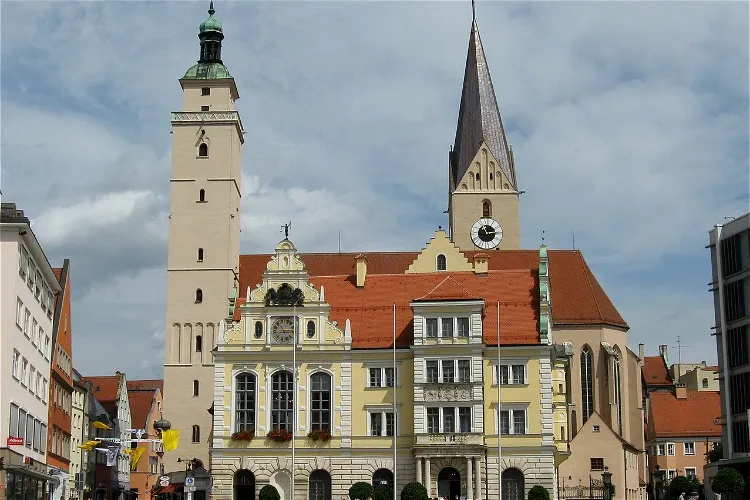
Old Town Hall
IngolstadtBetween 1882 and 1884, the four buildings that make up the Old Town Hall were redesigned and combined by Gabriel von Seidl. The result is a beautiful Neo-Renaissance style structure that stands as a testament to the architectural prowess of the time. Visitors can appreciate the intricate details and craftsmanship that went into this transformation.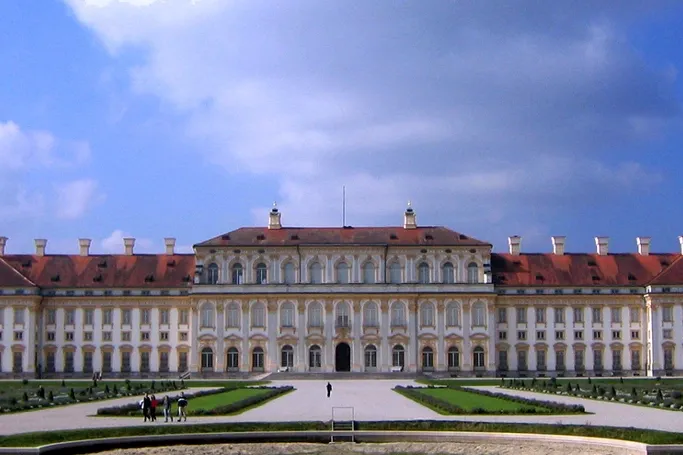
New Schloss Schleißheim
MunichSchleißheim Palace, located in the municipality of Oberschleißheim, north of Munich, is a German palace complex that consists of three palaces. These are the Old Schleißheim Palace and the New Schleißheim Palace, both situated in the western area of the park, and the Lustheim Palace, which is located in the eastern area of the park. Each palace offers a unique glimpse into the history and architecture of the region.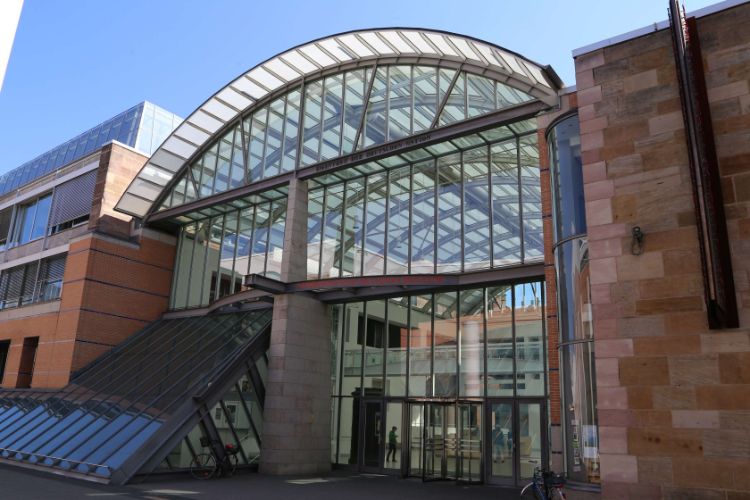
Germanisches Nationalmuseum
NurembergThe Germanisches Nationalmuseum is the largest museum of cultural history in Germany, located in Nuremberg. The museum holds and exhibits a large collection of items related to German culture and art from prehistoric times to the present day. The collection consists of around 1,3 million objects of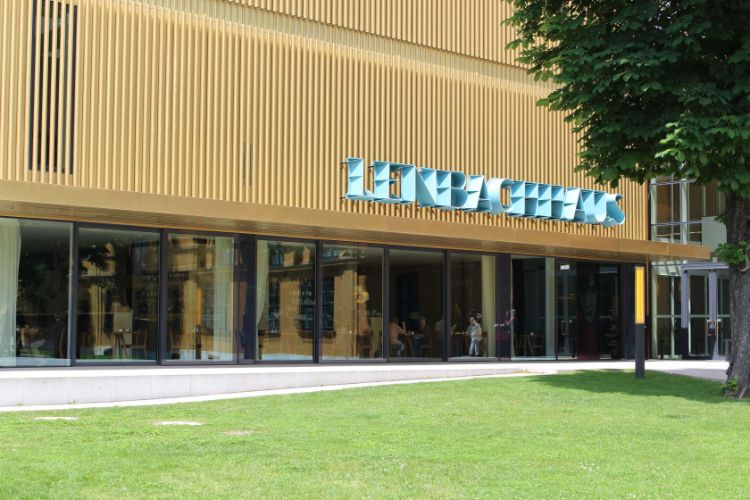
Municipal Gallery in Lenbach House
MunichThe Municipal Gallery in Lenbach House is a museum in Munich that is housed in the former villa of the German painter Franz von Lenbach, built between 1887 and 1891. The museum primarily displays work by painters that worked in Munich in the 18th and 19th centuries. The paintings of the Münchner Sch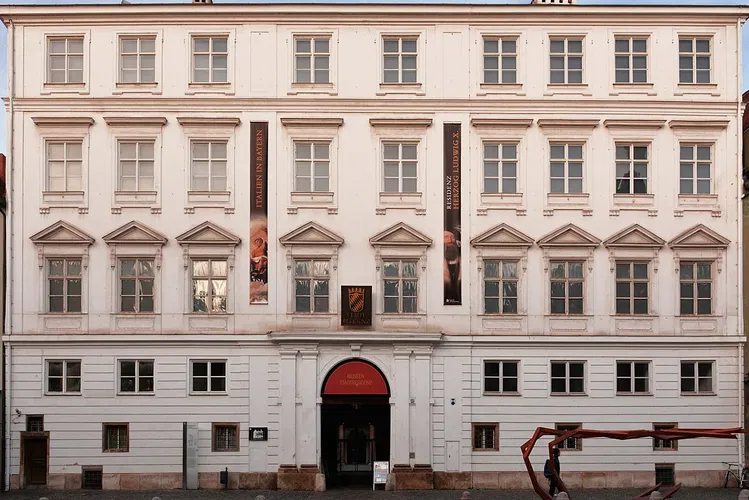
Landshut Residence
LandshutThe Stadtresidenz Landshut is a palace that was constructed in the heart of Landshut's old town under the reign of Duke Ludwig X between the years 1536 and 1543. After its construction, it was used by various nobles for residential purposes. This historical building offers a glimpse into the architectural style and living conditions of the nobility during the Renaissance period.
Diözesanmuseum Freising
FreisingThe Diözesanmuseum Freising, also known as DIMU, is a significant cultural institution located on the Domberg in Freising. It is the museum of the Archdiocese of Munich and Freising, making it a central point of interest for those interested in religious history and art.
Knauf-Museum
IphofenThe Knauf Museum Iphofen is a private institution situated in the Franconian city of Iphofen. It was established by the Knauf Gypsum KG, a renowned company in the gypsum industry. The museum is housed in a grand Baroque building in the city's market square, providing a unique cultural experience for visitors.
Historical Museum Bamberg
BambergThe Historical Museum Bamberg is situated in the Renaissance buildings of the Old Court, which is in close proximity to the Kaiserdom. This location adds to the historical charm of the museum and provides a unique setting for the exhibits. Visitors can enjoy the architectural beauty of the Renaissance buildings while exploring the museum's collections.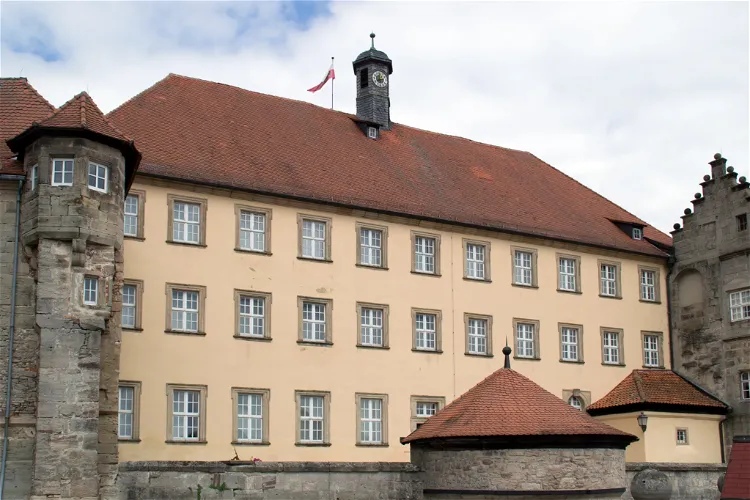
Fränkische Galerie
KronachThe Fränkische Galerie, located in the Upper Franconian city of Kronach, is a branch museum of the Bavarian National Museum in Munich. This connection to the Bavarian National Museum ensures a high standard of exhibits and a strong historical significance.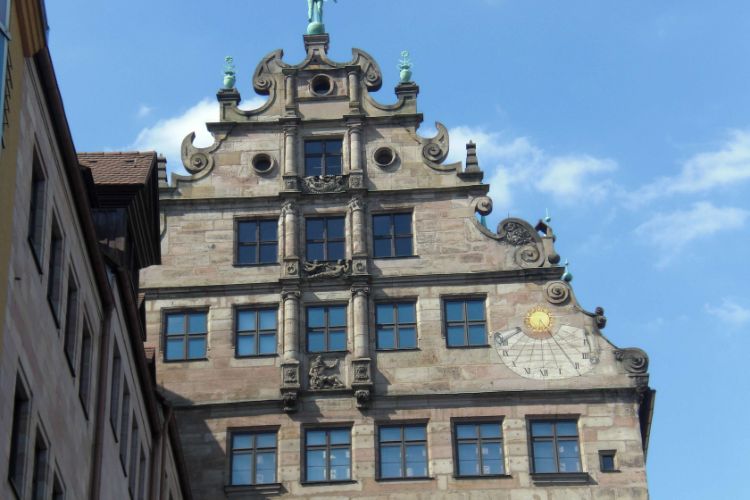
City Museum at Fembo House
NurembergThe Stadtmuseum Fembohaus (City Museum at Fembo House) is the city museum of Nuremberg that is dedicated to the history of Nuremberg that spans 950 years. The building that houses the City Museum is the Fembohaus, Nuremberg's only surviving large merchant's house of the late Renaissance. The museum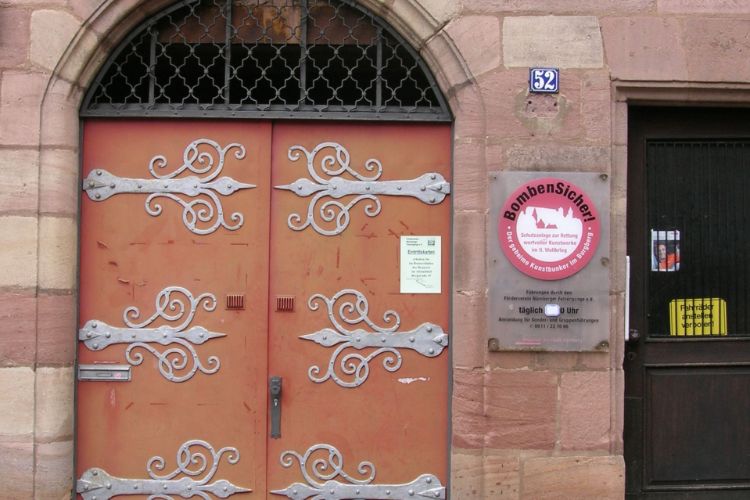
Kunstbunker
NurembergThe Historische Kunstbunker (Historic art bunker) is a tunnel complex under the Nuremberg Castle in Nuremberg. Visitors can participate in discovery tours to take a look at Nuremberg from a completely different side and discover places that have existed for many centuries but are hidden under the st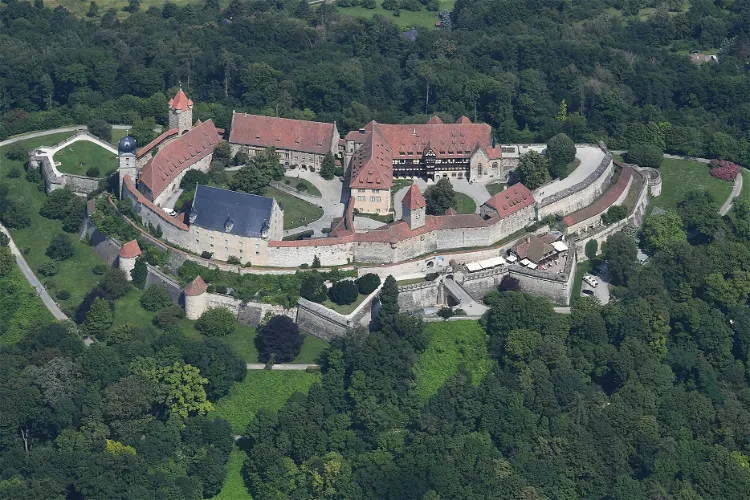
Veste Coburg
CoburgVeste Coburg, often referred to as the 'Franconian Crown', is a significant historical site in Germany. It is one of the largest and best-preserved castles in the country. The castle is strategically located on a hill, providing a panoramic view of the city of Coburg. It is situated on the border of Bavaria and Thuringia, adding to its historical and geographical significance.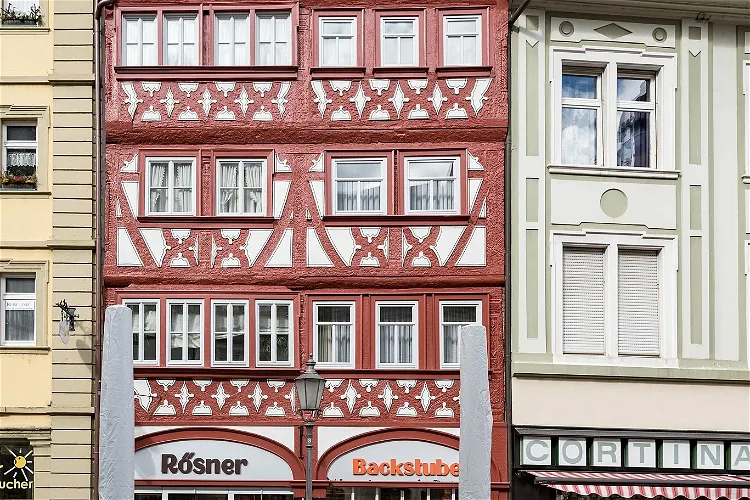
Conditorei Museum Kitzingen
KitzingenThe Conditorei Museum in Kitzingen is a unique institution dedicated to the bakery and confectionery crafts. It provides a deep dive into the history and evolution of these crafts, offering a unique perspective on the city's culinary heritage.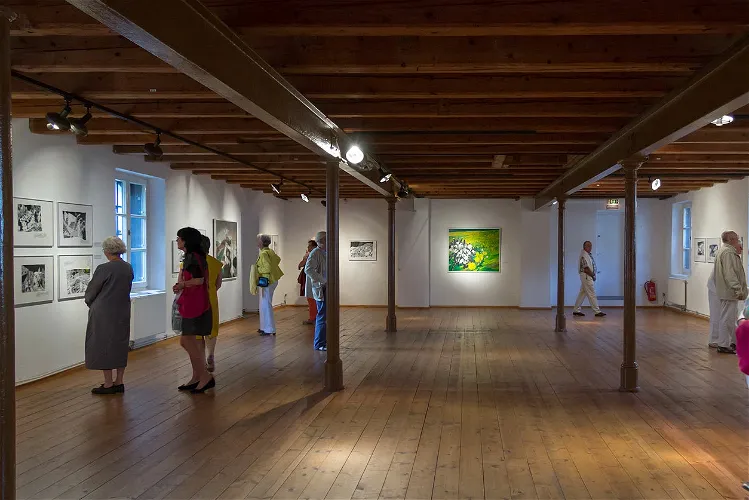
Museum Fürstenfeldbruck
FürstenfeldbruckThe Museum Fürstenfeldbruck, located in the former monastery brewery in the Cistercian monastery Fürstenfeld, is the city's art and cultural history museum. It offers a unique insight into the history and art of the Fürstenfeld monastery and its relationship with the Wittelsbach rulers.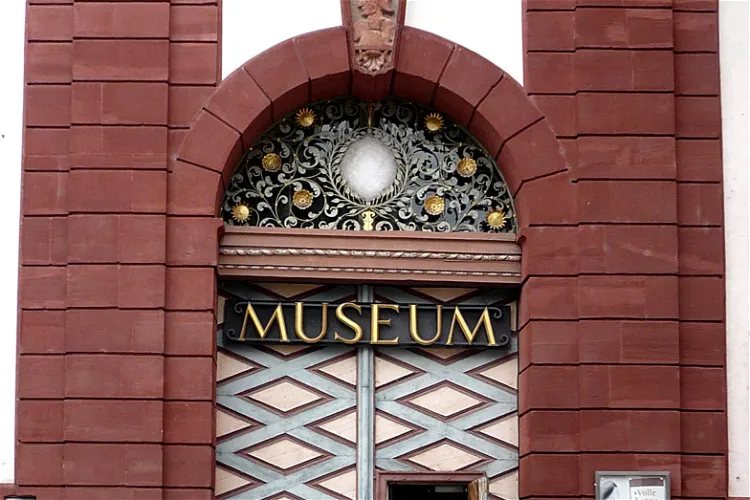
Museum für Franken & Staatliches Museum für Kunst- und Kulturgeschichte
WürzburgThe Museum für Franken, previously known as the Mainfränkisches Museum, is situated within the Marienberg Fortress in Würzburg. It is recognized as one of the largest art collections in Bavaria. The museum houses a vast array of high-value works from Franconian artists, making it a significant international museum in Germany.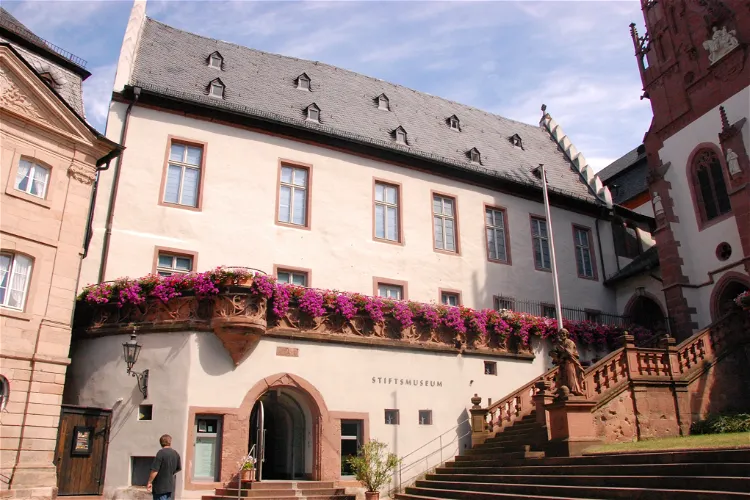
Stiftsmuseum
AschaffenburgThe Stiftsmuseum in Aschaffenburg is a city museum that offers a rich exploration of various historical periods. It is dedicated to prehistory, the art of the Middle Ages, the Renaissance, and the sacred art of the Baroque period. This wide range of exhibits provides a comprehensive overview of the artistic and cultural development of the region over centuries.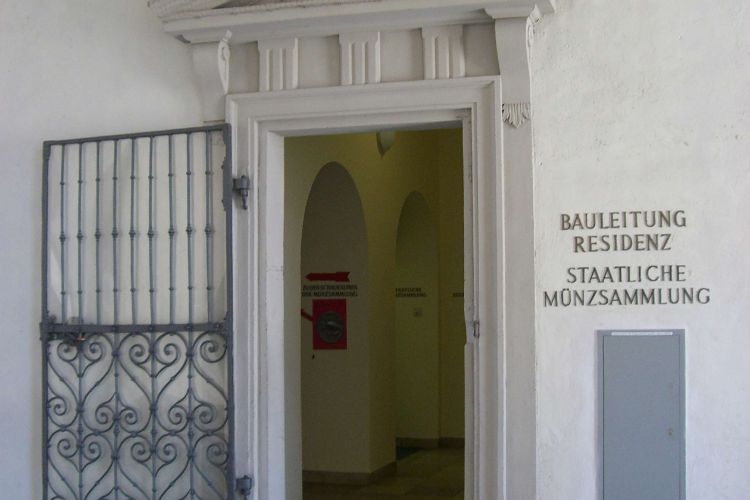
Staatliche Munzsammlung Munchen
MunichThe Staatliche Münzsammlung München is Bavaria's central numismatic collection. It is located in the Munich Residenz and houses over 300,000 coins, bank notes, money and medals from antiquity to the present day.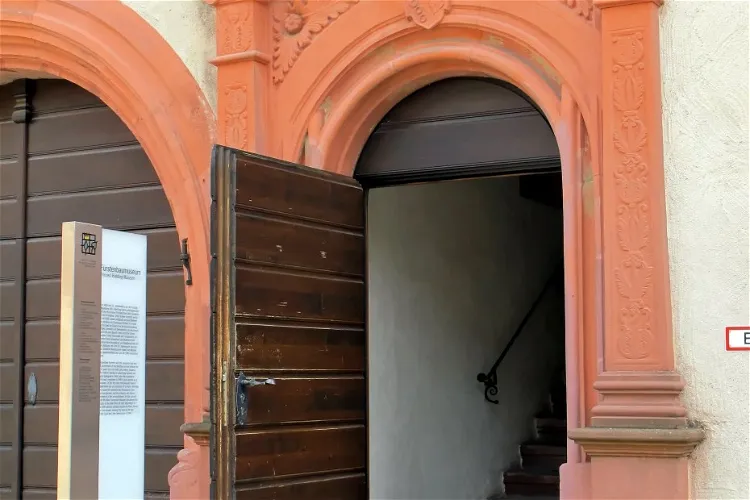
Fürstenbaumuseum
WürzburgThe Fürstenbaumuseum is a component of the Museum for Franconia. It is situated in the eastern wing, known as the Fürstenbau, of the Marienberg Fortress which is located above the city of Würzburg. This location provides a unique setting for the museum and offers visitors a chance to explore the fortress as well.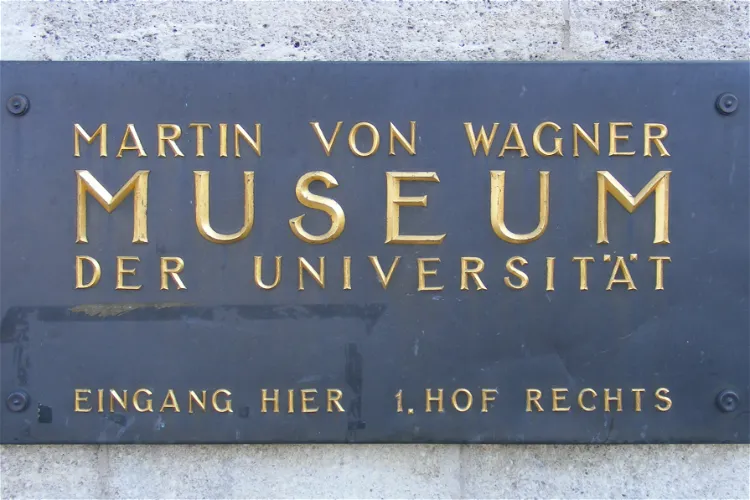
Martin von Wagner Museum
WürzburgThe Martin von Wagner Museum, situated in the south wing of the Würzburg Residence, is home to the University of Würzburg's art collection. This museum is one of the largest university museums in Europe and has been located in the Würzburg Residence since 1963. The collection was initially assembled by Franz Joseph Fröhlich, a musicologist and lecturer of the arts at the University of Würzburg, in 1832.
Kunsthaus Kaufbeuren
KaufbeurenThe Kunsthaus Kaufbeuren is a significant art hall located in Kaufbeuren. It was established in 1996 and is dedicated to the exhibition of contemporary and cultural-historical art. This makes it a great destination for art enthusiasts who are interested in both modern and historical art forms.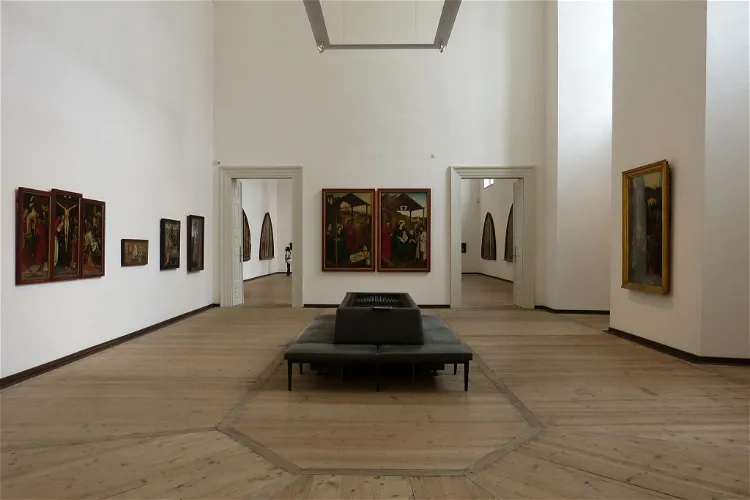
Staatsgalerie Altdeutsche Meister in der Katharinenkirche
AugsburgThe Staatsgalerie Altdeutsche Meister, often referred to as the Staatsgalerie in der Katharinenkirche, is an art museum situated in the old town of Augsburg. The museum was established after 1806 and relocated to the Katharinenkirche of the former Augsburg Katharinenkloster in 1835. This makes it the oldest branch gallery of the Bavarian State Painting Collections.
CHAMBER OF ART AND CURIOSITIES
LandshutThe Chamber of Art and Curiosities, also known as Kunst- und Wunderkammer Burg Trausnitz, is a branch of the Bavarian National Museum. It is situated in the Trausnitz Castle in Landshut, Lower Bavaria. This museum is a significant part of the Bavarian National Museum and offers a unique insight into the art and curiosities of the Renaissance period.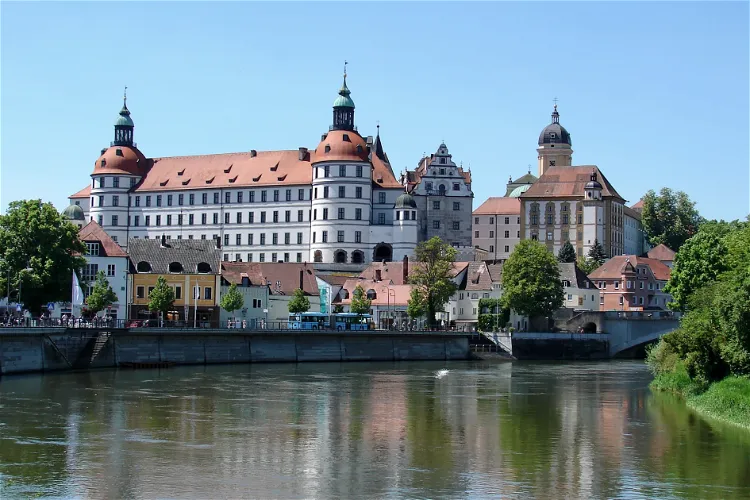
Neuburg Castle
Neuburg an der DonauIn 1527, Count Palatine Otto Henry initiated a significant transformation of the Neuburg Castle. He ordered the castle to be redesigned into a Renaissance palace, aiming to elevate its artistic quality and status. As a result, the castle became one of the most important palaces in Germany during the first half of the 16th Century.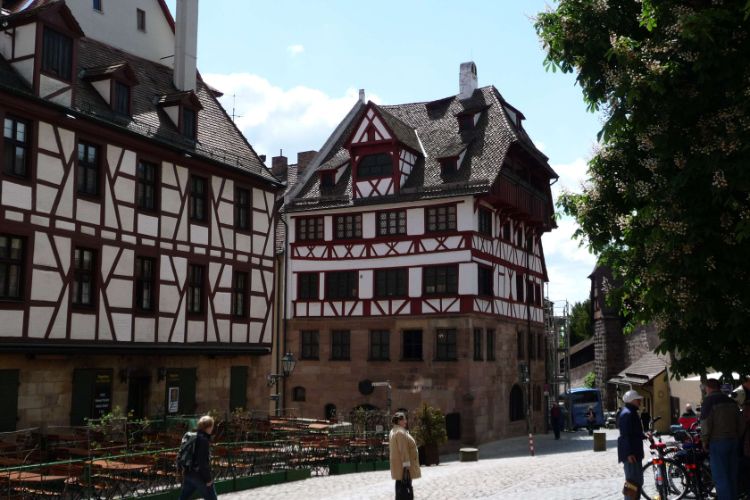
Albrecht Dürer's House
NurembergThe Albrecht Dürer's House (Albrecht-Dürer-Haus) is a Nuremberg Fachwerkhaus and the home of painter, printmaker, and theorist of the German Renaissance Albrecht Dürer from 1509 to his death in 1528. The house was built around 1420 and has five stories functioning as a museum dedicated to Dürer's li